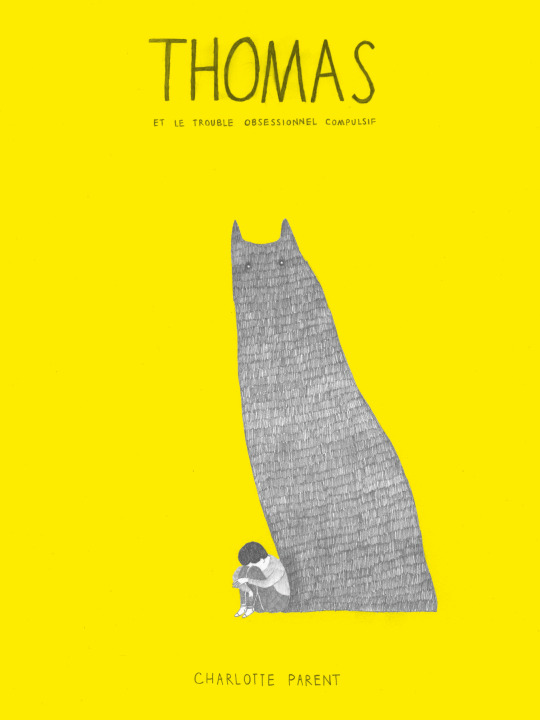#ciuss
Explore tagged Tumblr posts
Text
CIUSSS Saguenay-Lac-Saint-Jean
Délais d’attente pour obtenir la ligne 418 541-1000 – Conseils pour faciliter les appels téléphoniques à l’Hopital de Chicoutimi Continue reading CIUSSS Saguenay-Lac-Saint-Jean
0 notes
Text
COVID-19 : pas de vaccin pour la santé mentale

Québec - « Il y a vraiment des groupes qui ont plus tendance que d'autres à se déclarer en mauvaise santé mentale avec de l'anxiété, du stress ou même le symptôme de dépression, notamment les jeunes et les étudiants. » souligne la coordonnatrice du projet Ma vie et la pandémie (MAVIPAN) Marie Baron. Tout juste rencontrée, celle-ci a révelé que la santé mentale des étudiants est en chute libre à l’ère de la COVID-19.
Selon une étude réalisée par le MAVIPAN, tous les Québécois sont affectés par la pandémie. Seul la nature et l’intensité des effets varient d’un groupe à l’autre. Grâce aux recherches effectuées, le MAVIPAN a découvert que les étudiants éprouvaient le plus de symptôme lié à la santé mentale. L’anxiété, l’insomnie ainsi que la dépression sont les principaux effets observés chez les 18 à 25 ans. Des symptômes qui pourraient même continuer d’embêter les jeunes au-delà de la pandémie. Bien qu’il soit impossible d’évaluer les conséquences à long terme, les chercheurs du MAVIPAN ont déjà une noté une chronicité des symptômes chez les participants. D’après Mme Baron, plusieurs facteurs peuvent expliquer cette forte tendance chez les jeunes. En effet, les 18 à 25 ans traversent une grande période d’instabilité tant au niveau financier que professionnel. École, travail étudiant, début de carrière, famille, nouvelles charges financières, autonomie, etc. Ils doivent jongler avec multiples obligations et s’efforcer de cultiver une certaine stabilité. L’Institut national de santé publique au Québec (INSPQ) soutient la même conclusion. Dans un rapport paru en septembre par l’INSPQ, près de 40% des 18 à 24 ans indiquaient être en situation de détresse psychologique. Cette mesure est d’autant plus drastiquement plus élevée que les autres groupes d’âges. Dans le même document, le INSPQ indique que près du quart des Québécois affectés psychologiquement par la pandémie sont des étudiants.
Réunissant les quatre grands centres au CIUSS de la Capitale Nationale, le MAVIPAN est la plus vaste étude portant sur les conséquences psychologiques de la COVID-19. Entre 29 avril 2020 et le 2 mars 2021, 2898 individus ont participé à l’effort de recherche. Ceux-ci étaient invités à remplir 4 à 6 questionnaires en ligne par année. Le suivi effectué auprès des participants s’est avéré cruciale pour vérifier l’évolution des symptômes de détresse psychologique. Par le fait même, le MAVIPAN fait l’examen des processus d’adaptation émergeant chez les participants. L’ensemble de ces opérations est réalisé conformément à la mission de l’étude : prévenir et outiller la société en vue d’une prochaine crise sanitaire. On ne veut pas répéter les mêmes erreurs.

Découverte surprenante, au Québec, ce sont les ainés qui se portent le mieux. Lors de l’entrevue, Mme Baron a partagé un résultat inattendu ayant émergé de l’étude : « Parmi les personnes âgées autonomes, on était très inquiet. Mais finalement, c’est ce groupe-là qui a vraiment le moins d’impacts. » D’après l’INSPQ, moins de 10% des participants de 70 ans et plus possèdent un score de détresse psychologique problématique.
1 note
·
View note
Photo


Roman graphique écrit et illustré pour la clinique des troubles anxieux du centre de pédopsychiatrie du CIUSS de la Capitale-Nationale
0 notes
Link
“نعرف جميعنا أنّ الفيروس آخذ في الازدياد، ولهذا أدعو الكنديّين مرّة أخرى إلى الالتزام بإرشادات السلطات الصحيّة للوقاية ": بهذا الكلام توجّه رئيس الحكومة الكنديّة جوستان ترودو في مؤتمره الصحفيّ اليوم الثلاثاء في وقت شهدت العديد من المقاطعات ارتفاعا في عدد حالات كوفيد-19. ودعا ترودو الجميع مجدّدا إلى التزام التباعد الجسدي وارتداء الكمامة وغسل اليدين، وتنزيل تطبيق تتبّع حالات كوفيد-19 على هواتفهم الخليويّة.واعتبرترودو أنّهم ن الضروري أن تبذل بعض المقاطعات والبلديّات جهودا إضافيّة لاحتواء انتشار الفيروس، ولكن دون أن يسمّيها بالإسم."مع ارتفاع عدد حالا.ت كوفيد-19، هنالك ضغوط مرتفعة على كافّة مستويات الحكومة من أجل حماية الأفراد وحماية الاقتصاد. وكلّي أمل بألّا يخفّف أيّ من قادة البلاد من الحذر بسبب شعوره بالضغط كي لا يؤدّي ذلك إلى إغلاق الأعمال وتباطؤ الاقتصاد": رئيس الحكومة جوستان ترودو.وأعرب ترودو عن قلقه للعدد المرتفع من حالات الإصابة بمرض كوفيد-19 الذي يتسبّبب به فيروس كورونا المستجدّ في البلاد، وأكّد أنّه من الممكن السيطرة على العدوى بالتعاون بين الجميع. وقدّمت الحكومة ما يزيد على 3،3 ملايين اختبار سريع للكشف عن الفيروس في المقاطعات والأقاليم، كما أنّ وزارة الصحّة وافقت على اختبار بي دي فيريتور BD Veritor للكشف السريع عن الفيروس، وهو جهاز محمول قادر على معالجة الاختبار في أكثر بقليل من 15 دقيقة كما قال رئيس الحكومة جوستان ترودو.واستمرّ عدد حالات كوفيد-19 في الارتفاع في مقاطعتَي أونتاريو وكيبيك، وفي مانيتوبا في وسط الغرب، كما أنّه بلغ أعدادا غير مسبوقة في مقاعطتَي ألبرتا و بريتيش كولومبيا في الغرب الكندي.ففي بريتيش كولومبيا، حثّ رئيس الحكومة جون هورغان أبناء المقاطعة على التخفيف من التفاعلات الاجتماعيّة وحذّر من احتمال العودة إلى إجراءات أكثر تشدّدا في حال لم يتراجع عدد حالات كوفيد-19.وأكّد هورغان أنّ الجائحة فرضت تحدّيات كبيرة على الجميع دون استثناء، ولا يتوهّمنّ أحد بناء على ما يحدث في بريتيش كولومبيا و كندا وحول العالم ، بأنّنا سنتجاوز هذه المرحلة قريبا كما قال.وفي مانيتوبا، أعلن برايان باليستر رئيس الحكومة اليوم توسيع نطاق مرحلة التنبيه القصوى اعتبارا من يوم الخميس من العاصمة وينيبيغ ليشمل مختلف أنحاء المقاطعة.ودخلت المقاطعة مرحلة التصنيف الأحمر في نظام التصنيف المرمّز بالألوان الذي وضعته الحكومة والذي يتضمّن 4 مستويات من المخاطر مصنّفة بأربعة ألوان، الأحمر والبرتقالي والأصفر والأخضر، تتراوح من القيود الأقلّ تشدّدا إلى الأكثر تشدّدا تبعا لتطوّر الجائحة.وأعلن�� باليستر عن فرض المزيد من القيود المتشدّدة بما فيها إغلاق بعض الأعمال والخدمات الشخصيّة ومحلّات التسوّق الحضوري ومتاجر التجزئة غير الأساسيّة وقاعات استقبال الزبائن في المطاعم.ودعا د. برنت روسان رئيس الخدمات الطبيّة في مانيتوبا الجميع إلى التقيّد بإرشادات الوقاية والتخفيف من الاختلاط الاجتماعي ليقتصر على الاتصالات الأساسيّة دون سواها.وأكّد د. روسان أنّ مانيتوبا نجحت في السابق وسوف تنجح الآن في تسطيح منحنى الفيروس مشيرا إلى أنّ الأسابيع المقبلة ستكون صعبة ولكنّها مهمّة لإنقاذ الأرواح وتخفيف الضغط عن النظام الصحّي في المقاطعة، مشيرا إلى "أنّنا على مفترق خطير حاليّا". وأعلن رئيس الحكومة الكنديّة جوستان ترودو عن مساعدة ماليّة قدرها 61 مليون دولار للسكّان الأصليّين في مانيتوبا لدعمهم في مواجهة الجائحة والتداعيات المعيشيّة التي سبّبتها لهم.وفي أونتاريو، أعلنت د. كريستين إليوت عن 1388 حالة كوفيد-19 و15 حالة وفاة، وهو رقم قياسي آخر في كبرى مقاطعات كندا من حيث عدد السكّان وحجم الاقتصاد، للمرّة الثالثة خلال أربعة أيّام.وأضافت الوزيرة في تغريدة على موقع تويتر للتواصل الاجتماعي مشيرة إلى 520 حالة كوفيد-19 في مدينة تورونتو و 395 حالة في منطقة بيل Peel.وارتفع متوسّط عدد الحالات اليومي إلى 1154 حالة في أونتاريو خلال الأسبوع الماضي. وتخطّى عدد الحالات النشطة للمرّة الأولى عتبة العشرة آلاف حالة في المقاطعة، و أفيد عن 10106 حالة نشطة فيها.وفي حين ارتفع عدد حالات الاستشفاء ليبلغ 422 حالة، تراجع عدد الحالات التي تستدعي دخول العناية المركّزة لليوم الثالث على التوالي. وفي كيبيك أفادت السلطات الصحيّة عن 1138 حالة كوفيد-19 و 38 حالة وفاة اليوم الثلاثاء. وأكّد فرانسوا لوغو رئيس حكومة المقاطعة أنّ الوضع الراهن يقتضي اعتماد الحذر الشديد.وأعلن لوغو في مؤتمره الصحفي أنّ القيود المفروضة في المناطق المصنّفة حمراء أي في مرحلة التنبيه القصوى سوف تستمرّ حتّى الثالث والعشرين من الشهر الجاري.واستبعد تخفيف القيود في وقت يستمرّ عدد حالات المرض والوفاة بسبب كوفيد-19 في الارتفاع.ودعا لوغو المدراء العامّين في المراكز الجامعيّة المتكاملة للخدمات الصحيّة والاجتماعيّة CIUSS، ومراكز الرعاية الطويلة الأمد إلى فرض ارتداء الكمامة إلزاميّا، مشيرا إلى أنّه سوف تتمّ مساءلتهم بهذا الشأن.وقال كريستيان دوبيه وزير الصحّة الكيبيكي إنّ الحكومة سوف تتابع عن كثب إجراءات التهوية في المدارس وسواها من المؤسّسات.(راديو كندا / سي بي سي/ راديو كندا الدولي)
0 notes
Text
When orders don't go down
When orders don’t go down

[ad_1]
Last week, while the Prime Minister was rehearsing to avoid any gathering, the “litigation” officials of the CIUSS Center-Sud gathered around fifty staff members to inform them of the state of the situation.
Posted on April 3, 2020 at 6:00 a.m.
View On WordPress
0 notes
Link
I read this, about how the elderly, those with respiratory problems, live alone, or live in 3rd-floor or higher apartments are at especial risk.... and I realized they are talking about me! When the hell did that happen?!??
0 notes
Note
Astea care zic de baut se pișă pe ele cand are paharul în mână🤣 Eu nu il știu să bea peste măsură. Ciuss
auu 🤣🤣 e, tocmai d-aia se postează și el, să aibă unii și alții motive de bârfă =)))))
0 notes
Link
In a recent Quebec decision, the tribunal refused to ratify part of an agreement between a landlord and tenant that was contrary to the government’s order implementing a moratorium on evictions.
What Happened?
On April 15, 2020, the landlord applied to the Régie du logement to terminate her tenant’s lease and order the immediate eviction of the tenant.
The landlord asked the tribunal to make the order despite the Quebec Minister of Health and Social Services’ Order dated March 17, 2020 (the “Ministerial Order”), which read as follows:
“The effects of any judgment by a tribunal or any decision by the Régie du logement authorizing the repossession of a dwelling or the eviction of the lessee of a dwelling are suspended, as are the effects of any judgment or any decision ordering the eviction of the lessee or occupant of a dwelling, unless the lessor rented the dwelling again before the coming into effect of this Ministerial Order and the suspension would prevent the new lessee from taking possession of the premises. Despite the foregoing, the tribunal or the Régie du logement may, when exceptional circumstances justify doing so, order the enforcement of one of its judgments or one of its decisions, as the case may be.”
The Agreement
However, at the hearing, the tenant and landlord entered into an agreement and asked the tribunal to ratify it.
In the agreement, the landlord and tenant agreed that the lease would terminate no later than August 10, 2020, at which point the tenant would be required to move out. The agreement also allowed the tenant to move out earlier, with 10 days notice to the landlord.
COVID-19 Context
Additionally, the agreement included the following paragraphs:
5. The Tenant acknowledges that the Termination Date is mandatory and the Tenant must therefore move no later than the Termination Date. The Tenant expressly and irrevocably renounces invoking force majeure, including the COVID-19 pandemic, to justify not being able to give vacant possession of the Accommodation to the Landlord no later than the Termination Date.
8. The Tenant agrees to comply at all times with the containment and distancing measures put in place by the Landlord in connection with COVID-19.
13. The Tenant, in the event that the latter contracts COVID-19, undertakes to comply with all the measures necessary for the protection of other residents according to the directives of Public Health, the Ministry of Health and services social, CIUSS and CLSC.
19. [T]he parties recognize that the exceptional circumstances justify that the court or the Régie du logement order the execution of the conclusions of this agreement in the event of non-compliance, as provided for in Ministerial Order no. 2020-005 of March 17, 2020. [translated]
Decision
The tribunal took issue with paragraph 19 of the agreement.
While that paragraph stated that the parties recognized that there were exceptional circumstances at hand, the tribunal found that it was premature to use its discretion to make an order implementing the agreement against the Ministerial Order.
The tribunal explained that the Ministerial Order aimed to suspend the effects of any decision ordering the eviction of the tenant of a dwelling in order to protect the health of the population in the context of the state of health emergency decreed on March 13, 2020 by the Government of Quebec under the Public Health Actin connection with the COVID-19 pandemic.
While the Ministerial Order provided for the possibility for a court or tribunal to lift the suspension of the execution of one of its decisions if exceptional circumstances justified it, the tribunal found that the parties could not, by mutual agreement, replace the discretion of the court and determine for themselves whether or not exceptional circumstances existed to justify the execution of an order. The tribunal explained that it was not bound by such an agreement, stating:
“In these proceedings, given that the termination of the lease will be effective no later than August 10, the tribunal does not see how it can determine, in advance, whether or not there will be exceptional circumstances which may justify overriding the Ministerial Order at the time when the eviction of the tenant becomes effective, as the case may be.
Furthermore, the tribunal has no idea whether the Ministerial Order will still be effective as of August 10, 2020.” [translated]
As a result, the tribunal ratified the agreement as an enforceable decision, with the exception of paragraph 19 of the agreement.
Get Advice
Baker & Company has adopted all of the COVID-19 safety precautions and vulnerable employees have been invited to work from home. We are fully operational and continuing to work on client assignments. Where possible, meetings are being held via video link or by telephone conference.
At Baker & Company in Toronto, our real estate lawyers take the time to speak with you and understand your unique needs in order to guide you through your real estate matter, whether commercial or residential. We rely on our broad base of experience and expertise to provide exceptional legal advice and risk management in a variety of leasing issues. Call us at 416-777-0100 or contact us online for a consultation.
The post Landlord and Tenant Agreement Cannot Carve Out Exception to Quebec’s COVID-19 Eviction Moratorium appeared first on Baker & Company.
0 notes
Text
Forte circulation du virus de l’influenza dans la région
Conseils de santé en prévision de la semaine de relâche Continue reading Forte circulation du virus de l’influenza dans la région
0 notes
Text
In the wake of the deaths of 31 residents at a Montreal seniors' home, Quebec coroner, health authorities and police have launched investigations where the owners allegedly withheld medical files and staff left their posts in the early stages of an outbreak of the novel coronavirus.
Relatives described a facility where only one or two orderlies existed in each building, urine bags were left dripping on floors, citizens afflicted by COVID-19 were not appropriately isolated and others deprived of food or clean drinking water.
The deaths also arisen at Résidence Herron, a 154 bed private nursing home on West Island in Montreal, since March 13.
The operators at Herron – Katasa's chief executive Samir Chowieri and his daughter's assistant Katherine Chowieri – didn’t return certain messages left around over the weekend.
Quebec Premier François Legault said after they intervened in on March 29, the private operator had failed to fulfill with health authorities.
The government also faced criticism of its approach to a crisis, with relatives expressing concerns that Herron's resources appeared deficient after two days ago officials are active.
Five of Herron's deaths also already confirmed in COVID-19 cases, although while the others' causes are still undetermined.
Details of the condition at herron arose as administrators confirmed that, anywhere in patients flooding facilities, the pandemic’s greatest effects has been on elderly people’s clinics.
Health minister danielle mccann and city officials confirmed, however, that the government did not realize until friday that 30 people have died because herron’s owner was not cooperating.
In 2017, past complaints about Herron led the municipal ombudsman to investigate.
Leane Conti said the alleged mismanagement of the outbreak in the home is aligned with the disregard she believes her mother, Carole Stewart, experienced over the last two years while living there.
Despite a number of attacks, Ms. Stewart, who is nearly disabled , didn't want to depart the home because she couldn't face a move given her condition, Ms Conti said.
Natalie Nituch, whose husband has already been living at Herron a year since he has Parkinson's disease, said she's argued frequently in the past six months because he's become bathed maybe once a week and has not been given her medication properly.
She said the employees advised her the cotton, diapers and durable bed pads were limited and the patient napped in soiled beds.
"It all fell down," she said, after disease began.
On 14 March Quebec banned family visits to nursing homes to attempt to avoid a spread for disease.
Patrizia Di Biase-Leone, whose 97-year-old mother lives on the 2nd floor of the Herron, said she and her husband became helpless as e-mails came in, informing them that three cases had been detected, then five, then 12.
Mr. Wheeland's 87-year-old mother, Connie, was a few doors down the hallway from her mother's room.
Ms. Wheeland informed her son Peter that another female resident had helped deliver food trays, with so much of the staff nogone.
It's unclear that Herron adopted the proper practice of developing a different "red zone" for affected people and "blue zone" for those awaiting test results.
However, according to Le Journal de Montréal's letter, Ms. Chowieri also said Herron designated a red zone, which was later breached as health authorities called in external assistance.
The letter also said on March 27th the first case for Herron's COVID-19 was recorded, but the recollections by Ms. Conti contradict that claim.
Despite the lockdown on March 20, Ms. Conti was able to visit her mother who complained feeling unwell.
Two days ago, Ms. Stewart began throwing up blood and headed to hospital again in an ambulance.
Nevertheless, that employees of Herron appeared ignorant of how sick she was, Ms. Conti said.
No one brought breakfast on March 29, Mr. Wheeland said, and his mother, who has used a wheelchair, remained in her bed.
On the same day, the CIUSSS de l'Ouest de l'Île de Montréal, the local health authority, chose to step in and dispatched help to Herron.
The registered nurse Loredana Mule, who had agreed to help, got an instant call to go to the Herron family.
According to the Ombudsman report, Herron must mormally have 11 to 15 day-care staff.
She and the other outside employees matched and moved room by room to people to turn around it and change.
Two of the citizens have also been found in critical condition.
Everything remained chaotic even with the CIUSS action, the relatives said.
Last week, she claimed that people are not given enough fluids and no one informed them never to drink from the tap although the city water distribution network was being drained down.
Municipal authorities could only send support workers to help fill understaffed roles at Herron as they had no immediate authority to take over, said Lynne McVey, CEO of the local CIUSSS.
Ms. Chowieri's letter accused the CIUSSS for the confusion, blamed the outside personnel for administering care without consulting the medical charts, failed to consult the established staff and did not heed the red zone.
Ms. McVey said the CIUSSS staff are unable to access clinical files or contact information for relatives attributable to the lack of cooperation among Herron's leadership.
Ms. McCann, the Minister of Health, said that she once became aware of the possibility of dozens of accidents at the house on Thursday, since reading the Montreal Gazette.
Mr. Wheeland was doubtful about how authorities failed not realized that in less than a month more than 30 people had died.
His dad, moved to another facility, died April 4.
It was only on Friday evening that the doctors that were analyzing the files confirmed 31 deaths.
Ms. Di Biase-Leone had already an awareness of the death toll.
0 notes
Text
Weighted blankets are trendy, but will they help your child fall asleep?
New Post has been published on https://apzweb.com/weighted-blankets-are-trendy-but-will-they-help-your-child-fall-asleep/
Weighted blankets are trendy, but will they help your child fall asleep?
Weighted blankets are all the rage right now.
These blankets are supposed to mimic deep pressure touch stimulation and have a calming and soothing effect. Often, they are used by those who have a hard time sleeping through the night — but are they safe for children?
READ MORE: Can’t fall asleep? How to create the perfect sleep environment
“If you’re stressed or you have bad sleep habits, you’ll have trouble falling asleep and will likely have anxiety around bedtime,” Evelyne Martello, a sleep clinic nurse at the CIUSS du Nord-de-l’Ile-de-Montreal previously told Global News.
“A weighted blanket will help to quiet down your neurotransmitters [that are fired by anxiety or stress] and help you feel more secure, thus improving your sleep.”
Martello says weighted blankets are often used to help children who are on the autism spectrum, and may suffer from neurological, medical or behavioural issues. It can help comfort them and allow them to fall asleep faster.
Story continues below advertisement
0:31 The growing popularity of weighted blankets
The growing popularity of weighted blankets
There is some evidence to show that using weight as a calming strategy can be effective.
“Weighted blankets have been around for a long time, especially for kids with autism or behavioural disturbances,” Dr. Cristina Cusin, an assistant professor of psychiatry at Harvard Medical School, said in an interview with Harvard Health Publishing.
“It is one of the sensory tools commonly used in psychiatric units. Patients who are in distress may choose different types of sensory activities — holding a cold object, smelling particular aromas, manipulating dough, building objects, doing arts and crafts — to try to calm down.”
READ MORE: Still feel tired after a good night’s sleep? You may have hypersomnia
However, there is little research to prove weighted blankets actually help adults, and there’s way less research on children.
One small 2014 study analyzed the effect of weighted blankets on sleep in children with autism spectrum disorder. Seventy-three children between the ages of five and 16 participated in the randomized controlled trial — “the gold standard type of trial,” said Dr. Jennifer Poon, a behavioural pediatrician at the Medical University of South Carolina.
One group was given weighted blankets while the other was given a placebo, and the results were clear: “It did not help them fall asleep faster, and it did not help them stay asleep [or] wake less often,” said Poon.
5:38 Ask The Doctor: Insomnia and other sleep troubles
Ask The Doctor: Insomnia and other sleep troubles
“I think the question people had looking at this paper … was: Is this more of a placebo effect?”
Story continues below advertisement
Anecdotally, in her work with families of children with disabilities, autism spectrum disorder and ADHD, Poon has found similar results.
“I’ve had families who favour [weighted blankets] and I’ve had families who have said it hasn’t done a thing,” she said.
READ MORE: Oversleeping can increase your risk of stroke by up to 85 per cent, study says
As a pediatrician, Poon always warns parents of the potential risks associated with weighted blankets.
“One, [we need to make sure] that the child can’t open the blanket, take out the weights and swallow them,” she said. “Two, from the suffocation standpoint … if the child isn’t able to move outside of [the blanket] because it’s too heavy, that poses suffocation risk.”
Most weighted blankets come with a recommended weight standard.
Global News contacted Endy, a Canadian mattress company that makes weighted blankets, and a spokesperson said their product is recommended for adult use only.
“It is recommended that a weighted blanket be approximately 10 per cent of a person’s body weight,” said the company. “Our weighted blanket comes in one weight, which is 15 pounds, making it too heavy for most kids.”
Beware the wellness market
Products like weighted blankets have become somewhat trendy, popping up at big retailers like Indigo. On sites like Amazon Canada, anxiety relief products range from necklaces to mists to candles or even teas.
The stigma around the mental health disorder is slowly disappearing, Dr. Katherine Martinez of AnxietyBC previously told Global News, but these products are showing up in the wellness market because of our hectic world.
Story continues below advertisement
“We are in a much more fast-paced existence, especially in urban areas,” she said.
1:02 The unexpected health and social perks of dog ownership
The unexpected health and social perks of dog ownership
She adds being part of this world means wanting to deal with mental health issues quickly, and although she is hesitant to use the phrase, she says some of us look for a “quick fix.”
“You can get everything at your fingertips, so why wouldn’t we have the ability to calm the system?”
Tweet This
The target consumers of this space are also often vulnerable, she adds, and when products highlight relief, some may be willing to spend hundreds of dollars to make things work.
Some anxiety bracelets and necklaces on Amazon, for example, can cost up to $100, and for some, she adds, this could seem like a good investment for their health.
READ MORE: ‘You’re going to see a different kid’ — Why sleep should come before activities
“If it sounds too good to be true… it probably is. Do your research.”
And while she argues a product won’t cure anxiety, it can offer some relief. Studies have shown, she adds, things like exercise are proven to help people with mild depression and anxiety. Often, it’s about talking to your doctor to see what the best options are.
Story continues below advertisement
“Start with the evidence first and use [these products] with your eyes wide open.”
What happens when kids lack sleep
Not only is a child’s behaviour affected by a lack of sleep, so is their ability to perform in school.
One 2016 study showed a child’s developing brain regions are “hardest hit by sleep deprivation.” Another study found poor sleep was tied to lower academic performance.
“Research shows that having a clear mind is worth more than sometimes studying,” Loewen Nair, parenting expert and co-founder of London, Ont.-based Infinity School, previously told Global News.
“Being able to think requires a good amount of rest.”
Alternative sleep aids for children
In her work, Poon is often asked for safe sleep aids for children.
She has four recommendations:
Keep a routine, even on weekends. “[Use phrases like] ‘time to bed, time to wake’ as much as possible, and saying them seven days a week,” said Poon. “Try to avoid sleeping in on weekends, because that can disrupt our sleep cycle.”
Create soothing bedtime rituals. Calming activities like reading or having a bath, if done at the same time each day, can help a child fall asleep more easily.
Avoid caffeine. “Even things you might forget are caffeinated, like chocolate, coffee-flavoured ice cream and, of course, caffeinated beverages like [pop],” she said.
Avoid screens before bed. “Anything from TV to phones to tablets … and leaving the TV on before bedtime,” said Poon. She recommends turning off all screens one to two hours before bedtime.
— With files from Global News’ Arti Patel & Laura Hensley
Meghan.Collie@globalnews.ca
© 2020 Global News, a division of Corus Entertainment Inc.
JOURNALISTIC STANDARDS
REPORT AN ERROR
Source link
0 notes
Text
Déficience intellectuelle : Apprendre à vivre seul en appartement
Trente personnes adultes vivant avec une déficience intellectuelle viennent de terminer un programme visant à les rendre autonomes en logement. Katerina Landry, qui vit actuellement chez ses parents, et Carl Morneau, qui vit en chambre avec pension, viennent de recevoir leur diplôme et ont maintenant assez d’outils pour se débrouiller.
Le projet Appart’enance est né il y a cinq ans à l’Association pour l’intégration sociale de la région de Québec (AISQ), à la suite de remarques de parents qui déploraient le manque d’alternatives offertes à leurs enfants vivant avec une déficience intellectuelle en ce qui concerne le logement. Appart’enance est le premier programme du genre dans la région de la Capitale-Nationale.
Katerina Landry et Carl Morneau font partie des premiers à finir le programme.
De la cuisine aux habiletés sociales
Les personnes vivant avec une déficience intellectuelle font face à plusieurs défis, surtout dans un objectif d’autonomie. Le programme leur a été donné à la Maison des adultes de Charlesbourg, à raison de trois heures par soir, pour développer des compétences variées. «On a appris comment cuisiner, comment travailler en équipe. On se partage les responsabilités. On apprend comment gérer un budget, à bien passer l’aspirateur et se servir de la laveuse et de la sécheuse», a raconté Carl Morneau. «J’ai appris à travailler mes forces et mes faiblesses. J’aide beaucoup tout le monde mais je dois apprendre à ne pas faire à la place des autres», exprime quant à elle Mme Landry.
Comment gérer un conflit, comment gérer adéquatement les produits dans le frigo, comment respecter la bulle de l’autre sont d’autres formations dont les participants ont pu bénéficier. Le volet cuisine et respecter un budget ont été les gros morceaux, selon Marie Boulanger-Lemieux, présidente du conseil d’administration et représentante des parents. Après tant d’années d’efforts, on sent que les participants interrogés sont très fiers, mais prendraient encore des cours ensemble, tellement ils ont aimé y assister. «Appart’enance, c’est vraiment un bon nom, on est une belle équipe», mentionne M. Morneau. «Ça m’a vraiment épanouie», fait valoir Katerina Landry.
«Le projet va favoriser que la famille reste dans le décor. On veut un milieu de vie familial avec une cuisine commune et une grande salle. On doit travailler les transitions et le détachement avec les parents aussi», explique Mme Boulanger-Lemieux. Des policiers, des ambulanciers, un hygiéniste dentaire ont aussi donné des formations aux aspirants-locataires.
Projet participatif
Si les futurs locataires sont prêts, l’endroit lui, reste à déterminer. «Ce sera un projet avec de la mixité, des familles ou des gens sans déficience intellectuelle», indique Carol-Anne Hyland Carignan, intervenante et chargé de projet pour Appart’enance. 35 logements devraient être réservés aux finissants du programme au milieu d’autres logements. Le bloc sera une nouvelle construction dont l’emplacement n’est pas défini, mais qui doit évidemment être proche de tous les services, puisque les locataires se déplacent majoritairement en transport en commun. L’AISQ devra payer un pourcentage du projet, mais bénéficiera aussi de subventions gouvernementales et de la Ville de Québec. Sur place, il est prévu qu’il y ait un coordonnateur et des intervenants de jour et de soir.
Le Centre intégré en services sociaux (CIUSS) ou des éducateurs peuvent référer des personnes vivant avec une déficience au programme. Une nouvelle cohorte devrait bientôt se mettre sur pied, en plus des trente autres élèves actuellement en formation et des trente qui viennent de terminer.
Les finissants ont reçu leur diplôme fin décembre.
[Read More ...]
0 notes
Text
Déficience intellectuelle : Apprendre à vivre seul en appartement
Trente personnes adultes vivant avec une déficience intellectuelle viennent de terminer un programme visant à les rendre autonomes en logement. Katerina Landry, qui vit actuellement chez ses parents, et Carl Morneau, qui vit en chambre avec pension, viennent de recevoir leur diplôme et ont maintenant assez d’outils pour se débrouiller.
Le projet Appart’enance est né il y a cinq ans à l’Association pour l’intégration sociale de la région de Québec (AISQ), à la suite de remarques de parents qui déploraient le manque d’alternatives offertes à leurs enfants vivant avec une déficience intellectuelle en ce qui concerne le logement. Appart’enance est le premier programme du genre dans la région de la Capitale-Nationale.
Katerina Landry et Carl Morneau font partie des premiers à finir le programme.
De la cuisine aux habiletés sociales
Les personnes vivant avec une déficience intellectuelle font face à plusieurs défis, surtout dans un objectif d’autonomie. Le programme leur a été donné à la Maison des adultes de Charlesbourg, à raison de trois heures par soir, pour développer des compétences variées. «On a appris comment cuisiner, comment travailler en équipe. On se partage les responsabilités. On apprend comment gérer un budget, à bien passer l’aspirateur et se servir de la laveuse et de la sécheuse», a raconté Carl Morneau. «J’ai appris à travailler mes forces et mes faiblesses. J’aide beaucoup tout le monde mais je dois apprendre à ne pas faire à la place des autres», exprime quant à elle Mme Landry.
Comment gérer un conflit, comment gérer adéquatement les produits dans le frigo, comment respecter la bulle de l’autre sont d’autres formations dont les participants ont pu bénéficier. Le volet cuisine et respecter un budget ont été les gros morceaux, selon Marie Boulanger-Lemieux, présidente du conseil d’administration et représentante des parents. Après tant d’années d’efforts, on sent que les participants interrogés sont très fiers, mais prendraient encore des cours ensemble, tellement ils ont aimé y assister. «Appart’enance, c’est vraiment un bon nom, on est une belle équipe», mentionne M. Morneau. «Ça m’a vraiment épanouie», fait valoir Katerina Landry.
«Le projet va favoriser que la famille reste dans le décor. On veut un milieu de vie familial avec une cuisine commune et une grande salle. On doit travailler les transitions et le détachement avec les parents aussi», explique Mme Boulanger-Lemieux. Des policiers, des ambulanciers, un hygiéniste dentaire ont aussi donné des formations aux aspirants-locataires.
Projet participatif
Si les futurs locataires sont prêts, l’endroit lui, reste à déterminer. «Ce sera un projet avec de la mixité, des familles ou des gens sans déficience intellectuelle», indique Carol-Anne Hyland Carignan, intervenante et chargé de projet pour Appart’enance. 35 logements devraient être réservés aux finissants du programme au milieu d’autres logements. Le bloc sera une nouvelle construction dont l’emplacement n’est pas défini, mais qui doit évidemment être proche de tous les services, puisque les locataires se déplacent majoritairement en transport en commun. L’AISQ devra payer un pourcentage du projet, mais bénéficiera aussi de subventions gouvernementales et de la Ville de Québec. Sur place, il est prévu qu’il y ait un coordonnateur et des intervenants de jour et de soir.
Le Centre intégré en services sociaux (CIUSS) ou des éducateurs peuvent référer des personnes vivant avec une déficience au programme. Une nouvelle cohorte devrait bientôt se mettre sur pied, en plus des trente autres élèves actuellement en formation et des trente qui viennent de terminer.
Les finissants ont reçu leur diplôme fin décembre.
[Read More ...]
0 notes
Text
10 Baliho Kampanye ini Kocak Abis, Bikin Ngakak yang Liat!
Forbes – Sudah jadi pemandang biasa bagi masyarakat, melihat deretan baliho dan spanduk kampanye para caleg di jalanan. Ya, setiap mendekati pemilu legislatif, biasanya tim sukses dari caleg masing-masing akan memasang baliho di titik keramaian. Demi menarik perhatian masyarakat, mereka pun membuat baliho dengan sekreatif mungkin. Tapi seperti biasa, ujung-ujungnya jatuh ke hal kocak. Saking kocaknya, kamu pun akan dibuat tertawa ngakak melihatnya. Nggak percaya? berikut ini kumpulan potret baliho super kocak dan absurd abis. 1.Nah kan, ckckck.

2.Harus pakai baskom banget ya?

3.Singkatan pelakor dari sisi pandang caleg nih guys.

4.Hahaha, ceritanya jungkir balik beneran.

5.Laaahh, yang ini juga gak mau kalah.

6.Ini juga nih, hadeuh..

7.Ciuss? Mi apa?

8.Hm iya sih satu nomor, tapi yang namanya nasib kan bukan ditentuin nomor ya.

9.Yakali di foto kertas pemilunya pakai seragam satpam.

10.Apaaa, sejak kapan Shah Rukh Khan ikut nyaleg?

Read the full article
0 notes
Photo

Sore..... Alasan Apalagi Buat Kamu Ga Pake Bellezkin..?!?! Segudang Manfaat Ada Disini loooh.. 😍😍😍👍😉 Udh gak jaman lg pakai krim abal-abal yang kuning-kuning dan putih lengket itu tauu.. Ciuss.. Sayangi wajah kamu, jangan karena pengen putih & murah kamu pakai krim timbangan (abal-abal).. NIE ALASAN KENAPA KAMU HARUS MILIH BELLEZKIN : - BPOM - MURAH PALING MURAH - KANDUNGAN HERBAL ALAMI - GLOWING (MENGKILAP) - Tersedia SPV 30 / SPF 50 MELINDUNGI DARI EFEK BURUK SINAR MATAHARI - GAK PAKAI PERIH, GAK PAKAI MERAH WAJAH KAMU - FORMULANYA SANGAT RINGAN - MENGECILKAN PORI-PORI WAJAH - MENGHILANGKAN JERAWAT - MENGHILANGKAN FLEK HITAM - SUDAH DIBUKTIKAN RIBUAN WANITA😎 Hemmm komplit bangets deh buat wajah.. Udh banyak yang buktikan, untuk 1 paket lengkap terdiri dari : - krim siang spf 30/spf 50 - krim malam - facial wash - balancing tooner * untuk pemakaian 1-1,5 bulan.. BELLEZKIN aman digunakan karena sudah mendapat legalitas resmi dari bpom,aman digunakan untuk remaja,pria,ibu hamil,dan juga ibu menyusui digunakan untuk jangka pendek dan panjang karena formulainya sudah disesuaikan untuk pemakaian sehari-hari. BELLEZKIN tidak menimbulkan ketergantungan, banyak pertanyaan apakah setelah dpt hasil boleh dihentikan??? Boleh dihentikan , tapi ingat efek buruk diluar sana tidak perna berhenti malah semakin bertambah,jadi saran saya bila kamu uda cocok putih, sebaiknya diteruskan karena formulasi BELLEZKIN aman digunakan sehari-hari. Krim siang dapat melindungi wajah kamu dari pengaruh buruk sinar matahari, krim malam dan serum dapat membantu menutrisi wajah di malam hari. Sabun dapat membersihkan wajah kamu setelah seharian terkena debu, make up dan polusi. Tonernya bermanfaat menyegarkan wajah kamu. *** ORDER CEPAT & KONSULTASI GRATIS *** 👉WA: 0812 9851 005 👉Dropship aman 💯% 👉Member & eceran harga 🆗 #bellezkin #bellezkincare #onlineshopindonesia #jualkosmetik #obatjerawat #pemutihwajah #acne #perawatan
0 notes
